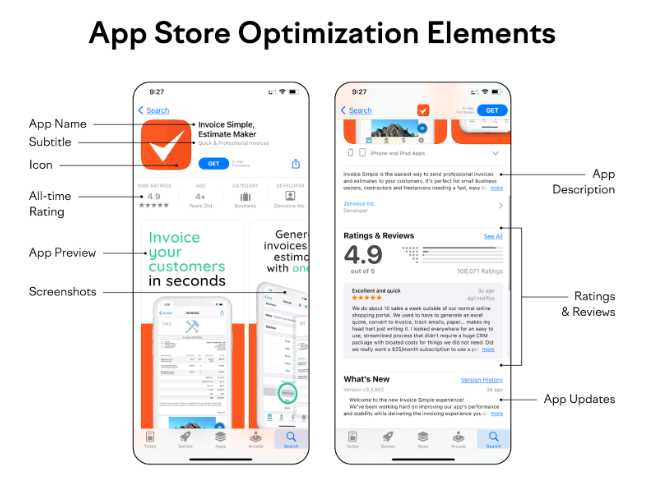If you’re embarking on the journey of app store optimization, it’s wise to keep an ASO checklist handy for your daily tasks. At eddress, we always advocate for a comprehensive approach in supporting our clients with their campaigns, and we frequently rely on the following template for guidance. So here’s a checklist for your app store optimization strategy.
Embarking on a successful app store optimization journey requires a meticulous strategy. Let’s delve into the steps that will guide you to enhance your app’s visibility and engagement:
- Research and Understand the Market:
Dive into the intricacies of user behavior within your app category.
Uncover valuable insights by identifying key markets and regions that resonate with your target audience.
- Keyword Research and Prioritization:
Establish a well-defined process for systematic keyword research.
Identify synonyms that effectively encapsulate the unique features of your app.
Conduct a comprehensive analysis of competitors within your category to glean valuable keyword insights.
- Optimize Your App’s Name:
Choose a name that is not only unique and relevant but also easily readable.
Adhere to character limits imposed by app stores to ensure optimal visibility.
Stringently follow app store guidelines to maintain compliance and trust.
- Metadata Optimization:
Craft a compelling description, subtitle, keyword field, and app description.
Ensure clarity, quality, and a logical structure in your metadata.
Focus on including relevant keywords to bolster search relevance.
Steer clear of forbidden keywords that may impact your app’s visibility negatively.
- A/B Testing and Continuous Improvement:
Initiate A/B testing strategies from the initial stages of your app’s development.
Analyze competitors for insights into effective optimization techniques.
Create variations, run experiments, meticulously evaluate results, and implement changes.
Iterate and refine your approach to ensure ongoing optimization and adaptability.
- Visual Assets Preparation:
Develop visually striking app screenshots and videos.
Showcase key features creatively and tell a compelling visual story to capture user interest.
Pay meticulous attention to layout and size requirements to ensure a seamless user experience.
- Global Expansion with Localization:
Identify key non-English-speaking markets with research and strategic planning.
Understand the unique nuances of each local market to tailor your approach effectively.
Begin the localization process by translating metadata into the native language.
Localize screenshots and verify the terminology to resonate with local users.
Expand your translations progressively to solidify your global presence.
- App Ratings and Reviews Management:
Develop a thoughtful strategy to encourage users to provide ratings for your app.
Aim for a balance between quantity and a high average rating to instill confidence in potential users.
Actively prompt users to leave reviews and engage with them by responding to feedback.
Emphasize positive ratings and reviews in your app store listings to build credibility.
Congratulations on navigating through this comprehensive guide! Should you have any further questions or need additional guidance, feel free to reach out.
Have a mobile app idea that you would like to explore? Visit our website and let’s get on a call!
For more content like this, visit our blog!






